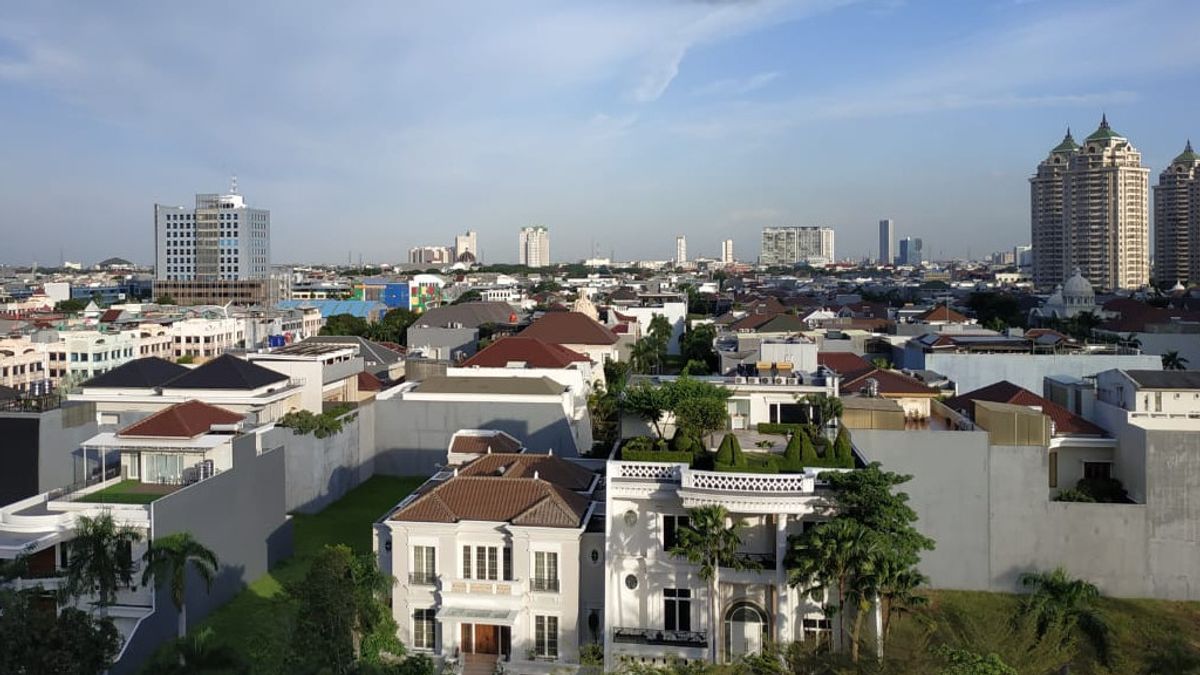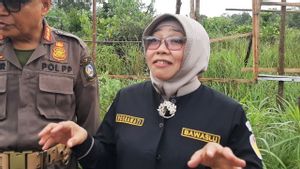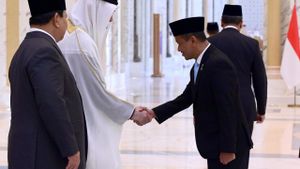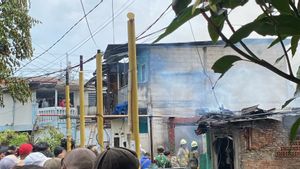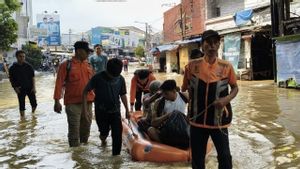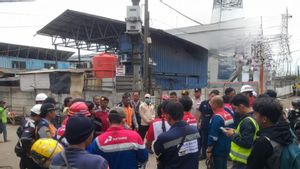JAKARTA - Today, the transitional PSBB period comes into effect in Jakarta. However, 66 RW out of 2,738 RW have to enforce strict restrictions. This is because 66 RWs are still in the red zone or areas with high levels of COVID-19 transmission.
Chairman of Commission A for Government Affairs of the DKI DPRD, Mujiyono, suggested several things that the DKI Provincial Government could do to the RW. Among other things, the DKI Provincial Government can carry out a local lockdown for each RW with a red zone. During that time, these RW-RWs are obliged to get adequate social assistance for all residents.
For RWs that have to implement PSBL, the DKI Manpower and Energy Agency must ensure that local residents are not allowed to get termination of employment (PHK). This is because they can only work at home for 14 days.
"By localizing the handling of COVID-19 at the RW level, the DKI Provincial Government can focus more on allocating its resources and can effectively control the spread of the COVID-19 outbreak," said Mujiyono when confirmed by VOI, Friday, June 5.
Then, handling related to COVID-19 in 66 RWs, both positive cases, people under surveillance (ODP), patients under surveillance (PDP), and people without symptoms (OTG) must be done optimally. Health facilities and infrastructure such as hospitals or independent isolation rooms must be provided by each RW.
"This needs to be done because not all residents can isolate themselves in their own homes," he said.
Mujiyono continued, the implementation of PSBL in 66 RWs is very much determined by the cooperation and coordination between all regional work units (SKPD) such as the mayor, sub-district, village head, DKI Health Service, Satpool PP, DKI Social Service, and RW-level Task Force.
"They must ensure that the health protocol during the implementation of PSBL can be carried out strictly," said Mujiyono.
The 66 RWs that still have to enforce strict local restrictions are:
1. 15 RW in West Jakarta area
Grogol 1 RWTomang 1 RWTangki 2 RWKrukut 1 RWBridge Besi 4 RWPalmerah 1 RWKota Bambu Utara 1 RWJati Pulo 1 RWCengkareng Timur 1 RWSrengseng 1 RWJoglo 1 RW
2. 15 RWs in the Central Jakarta area
Mangga Dua Selatan 1 RWCempaka Baru 1 RWKramat 1 RWCempaka Putih Barat 1 RWCempaka Putih Timur 2 RWGondangdia 1 RWKebon Kacang 2 RWKebon Melati 3 RWPetamburan 2 RWKampung Rawa 1
3. 3 RW in the South Jakarta area
Lebak Bulus 1 RWPondok Labu 1 RW Kalibata 1 RW
4. 15 RWs in the North Jakarta area
Penjaringan 2 RWSunter Agung 1 RWLagoa 1 RWCilincing 1 RWSemper Barat 1 RWSukapura 1 RWPademangan Barat 6Kelapa Gading Barat 1 RW
5. 15 RWs in the East Jakarta area
Utan Kayu Selatan 1 RW Palmeriam 1 RWBidara Cina 1 RWCipinang Besar Selatan 1 RW Cipinang Muara 2 RWKampung Tengah 3 RWPondok Bambu 1 RW Malaka Sari 2 RWMalaka Jaya
6. 3 RW in the Thousand Islands area
Kelapa Island 1 RW, Tidung Island 2 RW
Get to know the transitional PSBBDKI Jakarta Governor Anies Baswedan extended the PSBB period in Jakarta starting today, June 5, until an undetermined time. However, this phase four PSBB is a transitional phase.
During June, Jakarta still imposed restrictions by implementing the COVID-19 prevention protocol, but with the easing of movement from the previous PSBB. The goal is that people can do activities to fulfill their daily needs.
In detail, activities that have been reopened from the social and cultural sectors are outdoor sports facilities, museums, galleries, libraries, parks, RPTRA, and beaches. Then, offices and houses of worship also reopened.
In addition, the types of business premises will be opened gradually starting on June 8. On Monday, June 8, the places of business that may be opened are restaurants (independent), industry, warehousing, shops, workshops, services, photocopies, and other supporting services. Meanwhile, on Saturday, June 13, MSMEs under the guidance of the DKI Provincial Government may be opened.
Then, on June 15, Anies only allowed the opening of markets, malls and shopping centers other than those that provide food. All these places are allowed to only accommodate 50 percent of the total existing capacity. On June 20, the theme park and zoo will open.
All sites that reopen must comply with regulations by reducing capacity by 50 percent. Also, they must implement the COVID-19 prevention protocol, such as always wearing a mask, maintaining a safe distance, and washing hands with soap.
However, there are activities that have not yet been decided to open. This activity will only be opened during the phase two transition period, after the DKI Provincial Government has reviewed the PSBB during the first phase of the transition.
These activities are religious activities with mass gatherings, schools, gyms, swimming pools, night markets, folk festivals, beauty clinics, salons, conference halls, wedding and circumcision receptions, cinemas, night entertainment, boutiques, and the like.
In addition, starting tomorrow, all public vehicles can resume operations with a 50 percent storage capacity. The MRT and Transjakarta will operate in normal hours with short headways.
In private vehicles, motorbikes and cars are allowed to carry 100 percent of the capacity provided that all are one family. Meanwhile, in general, private vehicles can only accommodate 50 percent. Then, Anies allowed base ojek or online ojek to operate starting Monday, June 8.
The English, Chinese, Japanese, Arabic, and French versions are automatically generated by the AI. So there may still be inaccuracies in translating, please always see Indonesian as our main language. (system supported by DigitalSiber.id)
